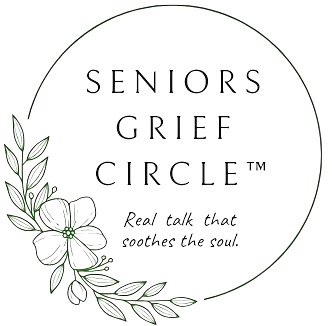Losing a spouse is undoubtedly one of life’s toughest challenges, and while grief takes center stage, managing the financial aftermath is a crucial step toward stability.
If you’re in Ontario, Canada, here’s a simple 10-point checklist to help you navigate the intricate landscape of post-loss finances. Use it to keep yourself on track, and e sure to organize all paperwork in a new file (either online, on your laptop or keep paper records). The same steps apply if you’re living in another jurisdiction in Canada or another country – you’ll know the institutions you need to contact.
Notify Relevant Authorities
Begin with informing Service Canada and Canada Pension Plan. Ensure the Social Insurance Number is cancelled, along with the passport of the deceased person. Contact Service Ontario (at the provincial level) to cancel their driver’s license, government health card (OHIP) and any other government documentation (e.g. vehicle ownership). This step ensures a smooth transition. You may be asked to produce your spouse’s Will and/or a death certificate, so take them along with you when notifying these authorities.
Contact Banks and Other Financial Institutions
Reach out to your spouse’s banks and financial institutions to update account information. Ensure joint accounts are handled appropriately and inquire about any outstanding debts (including credit card debt, line of credit, car loan or home equity loan), and mortgages.
Check Pension and Other Retirement Accounts
Contact pension providers and retirement account administrators to discuss survivor benefits or any spousal pensions. Be aware of any paperwork required (e.g. your spouse’s Will and a death certificate) to facilitate a seamless transition.
Review Insurance Policies
Contact life insurance companies to file a claim. Review other insurance policies, including health and property insurance, to make necessary adjustments and prevent any lapses in coverage.
Update Will and Estate Documents
Review your spouse’s Will and estate documents, and consult with a lawyer if needed. Ensure that beneficiary designations and Power of Attorney documents align with your current circumstances.
Explore Survivor Benefits
Inquire about survivor benefits available through your spouse’s workplace, if applicable. Contact the employer’s HR department to understand any entitlements or support services available.
Assess Tax Implications
Understand the tax implications of your spouse’s passing. Seek guidance on filing the final tax return and any other taxes owed for the deceased, and consider consulting with a tax professional for personalized advice.
Close or Modify Joint Accounts
Evaluate joint accounts, including credit cards and utility bills. Close or modify these accounts to prevent complications and ensure financial responsibilities are appropriately managed. You may need to provide paperwork to make any account changes, such as your spouse’s Will, death certificate and even a deed to your primary residence to change the name on utility bills.
Access Safe Deposit Box
If your spouse had a safe deposit box, access it to ensure important documents such as titles, deeds and other valuable items.
Seek Financial Advice
Consider consulting with a financial advisor or a chartered accountant to create a comprehensive financial plan moving forward. They can provide guidance on investments, tax planning, budgeting and long-term financial goals tailored to your new circumstances.
Remember, taking these steps doesn’t have to happen all at once.
Grieving is a personal journey, and managing finances post-loss is a process that unfolds at your pace. By following this checklist, you’re taking proactive steps to navigate the financial landscape with care and consideration during a challenging time.
If you’re looking for some help, feel free to join the Seniors Grief Circle. You’ll gain access to our trusted and caring network of professionals who can help you work through this list on your own time. You can also book a 1:1 coaching call with me for some personalized guidance. Keep in mind you’re not alone, and you have a supportive and caring community at your side when you join the Seniors Grief Circle.

